Copyright 2014 by Michael Love Foreword 2014 Robert Irvine All rights reserved. No part of this book may be reproduced in any manner without the express written consent of the publisher, except in the case of brief excerpts in critical reviews or articles. All inquiries should be addressed to Skyhorse Publishing, 307 West 36th Street, 11th Floor, New York, NY 10018. Skyhorse Publishing books may be purchased in bulk at special discounts for sales promotion, corporate gifts, fund-raising, or educational purposes. Special editions can also be created to specifications. For details, contact the Special Sales Department, Skyhorse Publishing, 307 West 36th Street, 11th Floor, New York, NY 10018 or .
Skyhorse and Skyhorse Publishing are registered trademarks of Skyhorse Publishing, Inc., a Delaware corporation. Visit our website at www.skyhorsepublishing.com. 10 9 8 7 6 5 4 3 2 1 Library of Congress Cataloging-in-Publication Data Love, Michael, 1962- author. The salvage chef cookbook : more than 125 recipes, tips, and secrets to transform what you have in your kitchen into delicious dishes for the ones you love / Michael Love, specialty chef at Epicure Gourmet Market & Cafe ; foreword by Robert Irvine ; photos by Lynn Parks. pages cm ISBN 978-1-62914-581-5 (hardback) -- ISBN 978-1-63220-113-3 (ebook) 1. 2. 2.
Cooking (Leftovers) 3. Consumer education. I. Title. TX714.L675 2014 641.5--dc23 2014033636 Cover design by Owen Corrigan Cover photo credit Lynn Parks Interior design by Sam Schechter Print ISBN: 978-1-62914-581-5 Ebook ISBN: 978-1-63220-113-3 Printed in China F OREWORD Over the past few decades, South Florida cuisine has evolved from providing uninteresting tourist food to an international culinary mix that rivals some of the great American cities. Miami, in particular, has benefited from not only strong Latin and Caribbean influences, but also cuisines and techniques from Asia, Europe, and the Mediterranean.
Additionally, South Florida cuisine, its restaurants, and its markets benefit greatly from the wealth of fresh seafood, tropical fruits, and locally grown vegetables available year round. Though once a city known for its Art Deco hotels and weekend-long spring break parties, Miami now offers travelers and locals a plethora of trendy high-end contemporary American eateries and an ever expanding array of fusion cooking. One constant in this growing and sophisticated culinary landscape has been Epicure Gourmet Market and Caf, which was founded in the 1940s. As I hosted Epicures Party: Impossible for the 2012 South Beach Wine & Food Festival, I got to know Epicures owner, Jason Starkman, and their talented Specialty Chef Michael Love both personally and as colleagues. As we served and entertained more than 1,600 guests, I discovered their mutual innate enthusiasm about food. Additionally, I was so impressed when I sampled Michaels offerings that are part of the Epicure with Love line, and what struck me was not only Michaels creative all-natural approach to cooking, but his passion for sharing his knowledge with home cooks.
As the former host of programs with the titles Dinner: Impossible and Worst Cooks in America and current host of Restaurant: Impossible, I can assure you that, regardless of the popularity of cooking shows today, millions of cooks really dont know what to do with the food they currently have stored in their pantries and refrigerators and will benefit greatly from the salvage cooking skills, techniques, and recipes that Michael has detailed in this book. Like many professional chefs, I can taste a dish just by reading the recipe, and I can promise you that youve got some delicious meals in store when cooking the dishes in this book. Michael is one of the upcoming stars in the constellation of the Miami food scene. His Salvage Chef Cookbook is a wonderful collection of dishes for cooks of all levels looking for ways to cut down on food waste, lower their food costs, and put contemporary spins on classic dishes. Robert Irvine 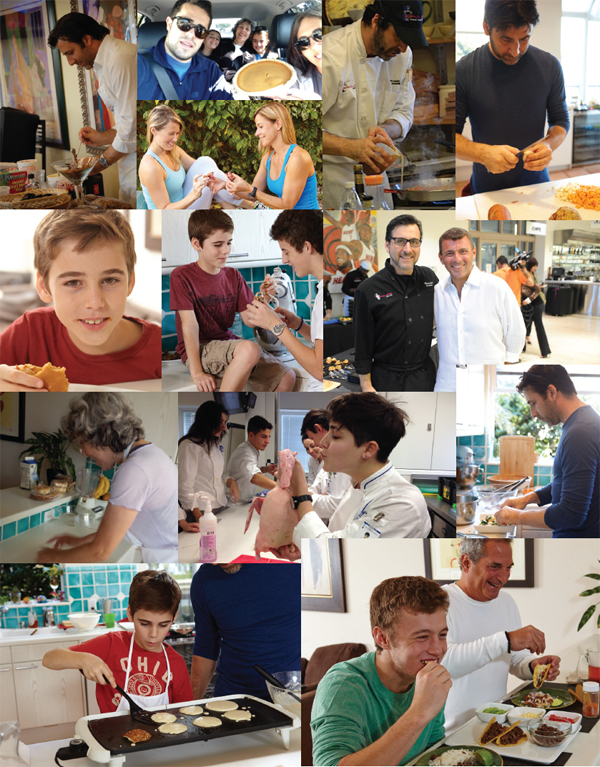 P REFACE Great food is like great sex. The more you have the more you want.
P REFACE Great food is like great sex. The more you have the more you want.
Gael Greene FOOD. We live it, we crave it, we savor it, we cook it, we watch it, and we even dream about it. Throughout the centuries, the kitchen has been the epicenter of family life. Today, it still is the place where we gather to plan our vacations and family gatherings, discuss sports, work schedules, have family powwows, do homework, invite a friend for coffee... It is a place where we make our shopping lists and think and talk food. When I was about six years old, living in the suburbs of Long Island, New York, I spent many hours imagining myself as the star in the kitchen, creating marvelous dishes for my family to great applause.
I often stayed home from school as I suffered from childhood asthma. My mother would make me tea with milk and honey and white toast with butter and jelly. As I devoured this simple yet delicious breakfast, I would avidly watch TV shows all morning and into the afternoon. In the late 1960s and early 70s, there were only two cooking shows on television, Julia Childs The French Chef and Graham Kerrs The Galloping Gourmet . Graham Kerr was fascinating to watch. He would run through the audience with a forkful of chicken covered in some butter-laden sauce and lovingly feed it to an adoring Graham fan who would proceed to roll her eyes back and moan in a food orgasm as the camera panned across his captivated followers.
I could do that. If I could just talk with that accent, tie a silk scarf around my neck, and wear tight pants, I could do that. I had already developed an interest in cooking from my mother, her mother, and most of all, Louise, our wonderful cook from Savannah, Georgia, who worked first for my great-aunt, then for my grandmother (who stole her from my great-aunt), and eventually for my mother. Early on, my grandmother taught Louise to cook many of the traditional Jewish dishes our family loved like brisket, roast chicken with dark gravy, chopped liver, and matzo-ball soup. She took those recipes and added her own special touches, creating the richest brown gravy ever, the deepest deep-dish apple pie with a layer of crust in the middle, the spiciest pumpkin pie served with thick whipped cream, and the darkest, richest chocolate cake with amazing buttercream frosting. Louise reciprocated by teaching my grandmother how to make the crispiest, crunchiest southern fried chicken.
Between the scents in the kitchen, which would draw me in like a cartoon character floating horizontally on a visible aroma trail, and watching my two favorite cooking shows, I discovered not only a love for the kitchen, but also an affinity for food and a talent for cooking. From the two shows on TV back in the 60s to more than two hundred shows per week on a dozen or more channels mainly dedicated to cooking, the world is waking up to not only a diverse spectrum of cuisine, but also cooking techniques, celebrity chefs, spices, competitions and cook-offs, butter, bacon, throwdowns, and a culinary point of view. Top chefs, caterers, grandmothers, short order cooks, and home cooks all know fundamental formulas for cooking good food: fresh ingredients, simple layers of flavor, and a solid, proven technique. However, many of these same people, professional and home cooks, are often at a loss when it comes to using their considerable culinary skills on previously purchased food that is left languishing in the fridge, breadbox, or pantry. Perfectly good food is too often thrown out because it is a few days from peak freshness or has passed its expiration date. While working as the specialty chef at Epicure Gourmet Market in Miami Beach, I spent a good amount of time in the meat department and created many cooked food items from the fresh meat, poultry, and seafood that came in daily.


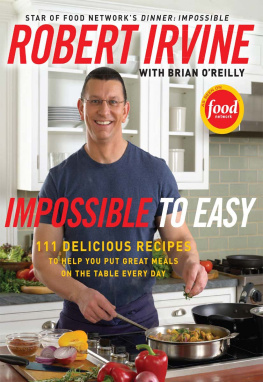
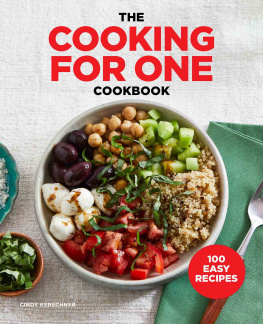
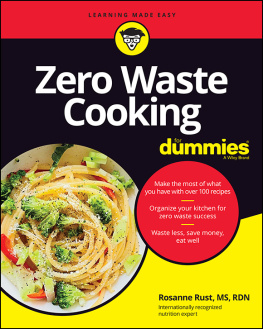
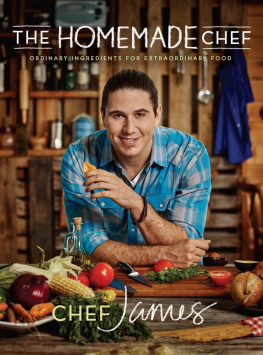

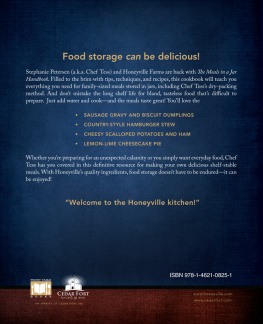
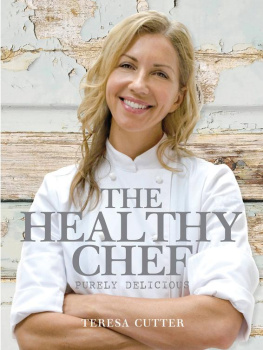
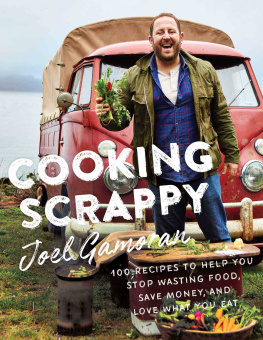
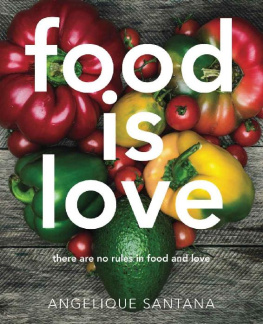
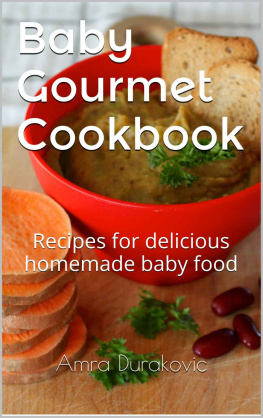


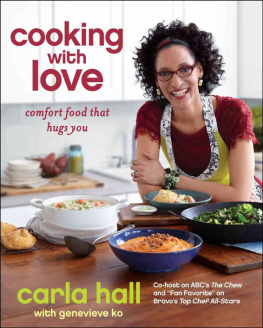


 P REFACE Great food is like great sex. The more you have the more you want.
P REFACE Great food is like great sex. The more you have the more you want.